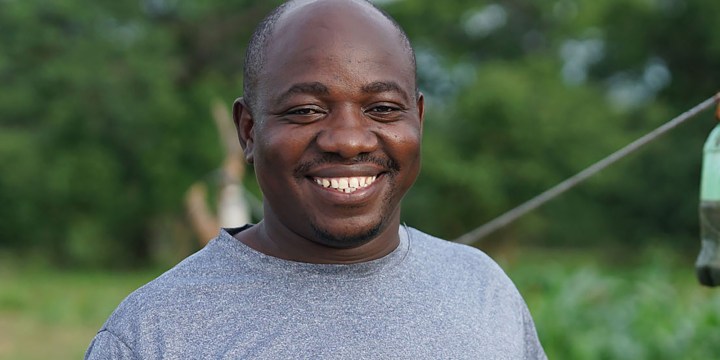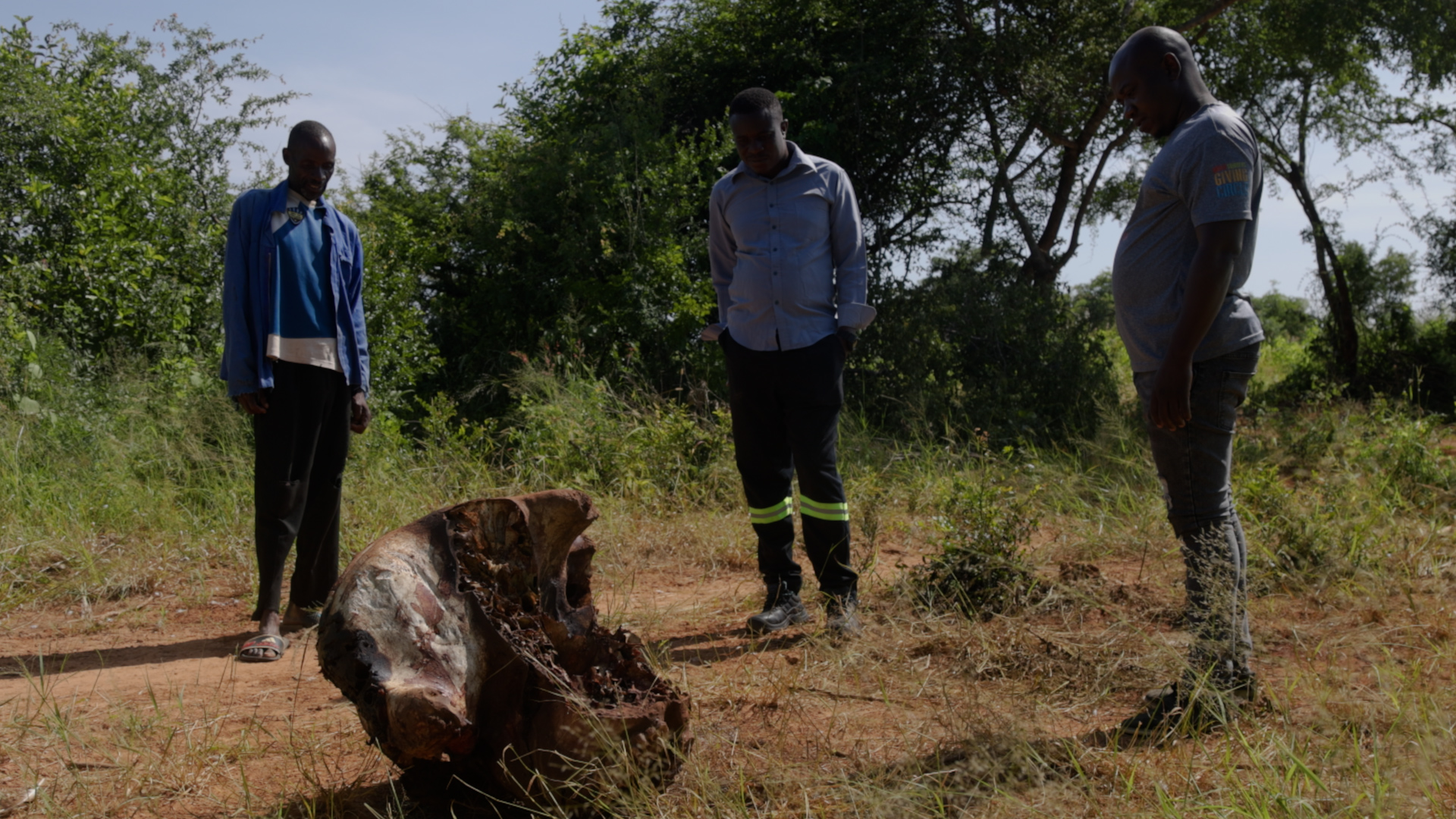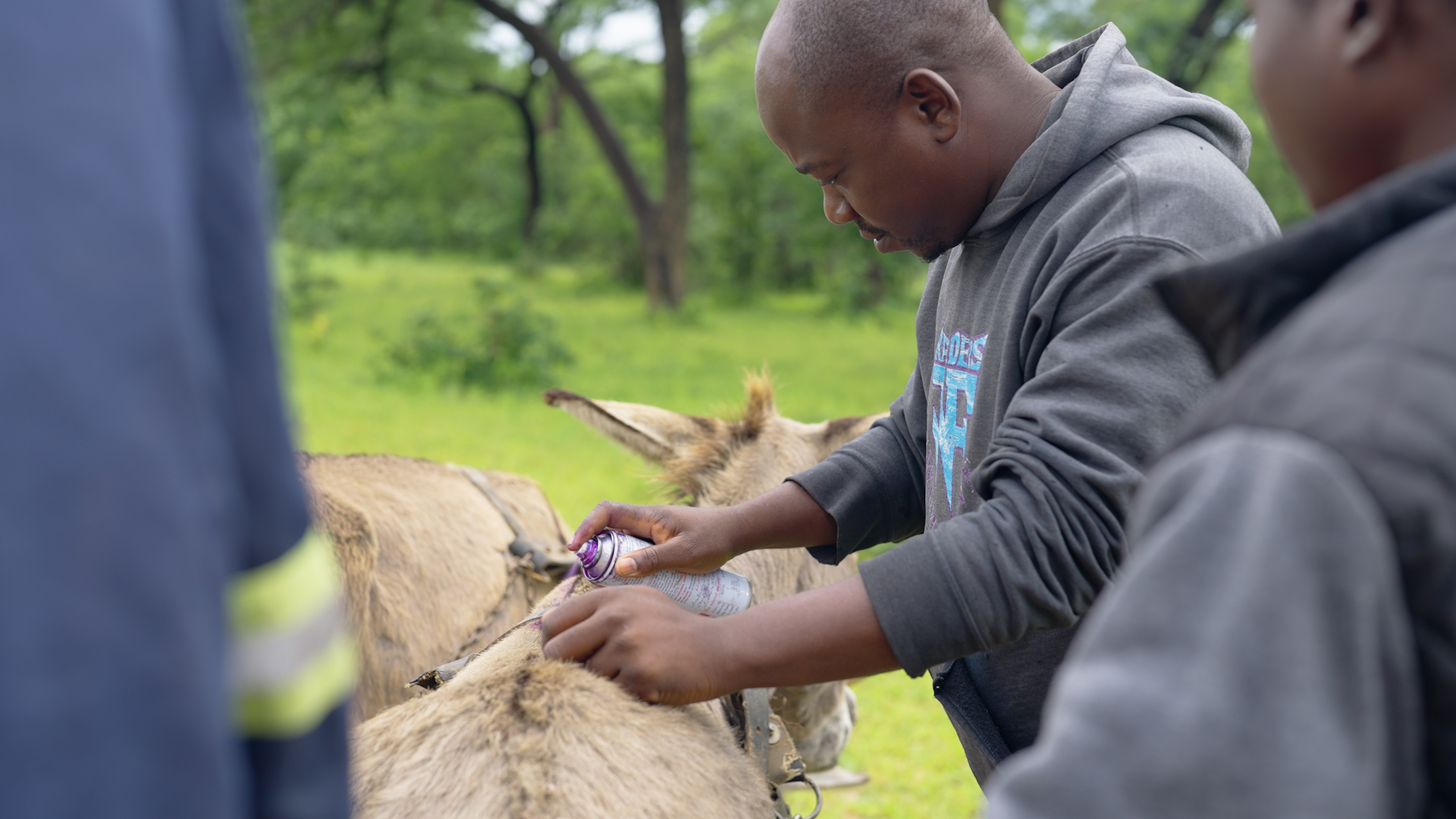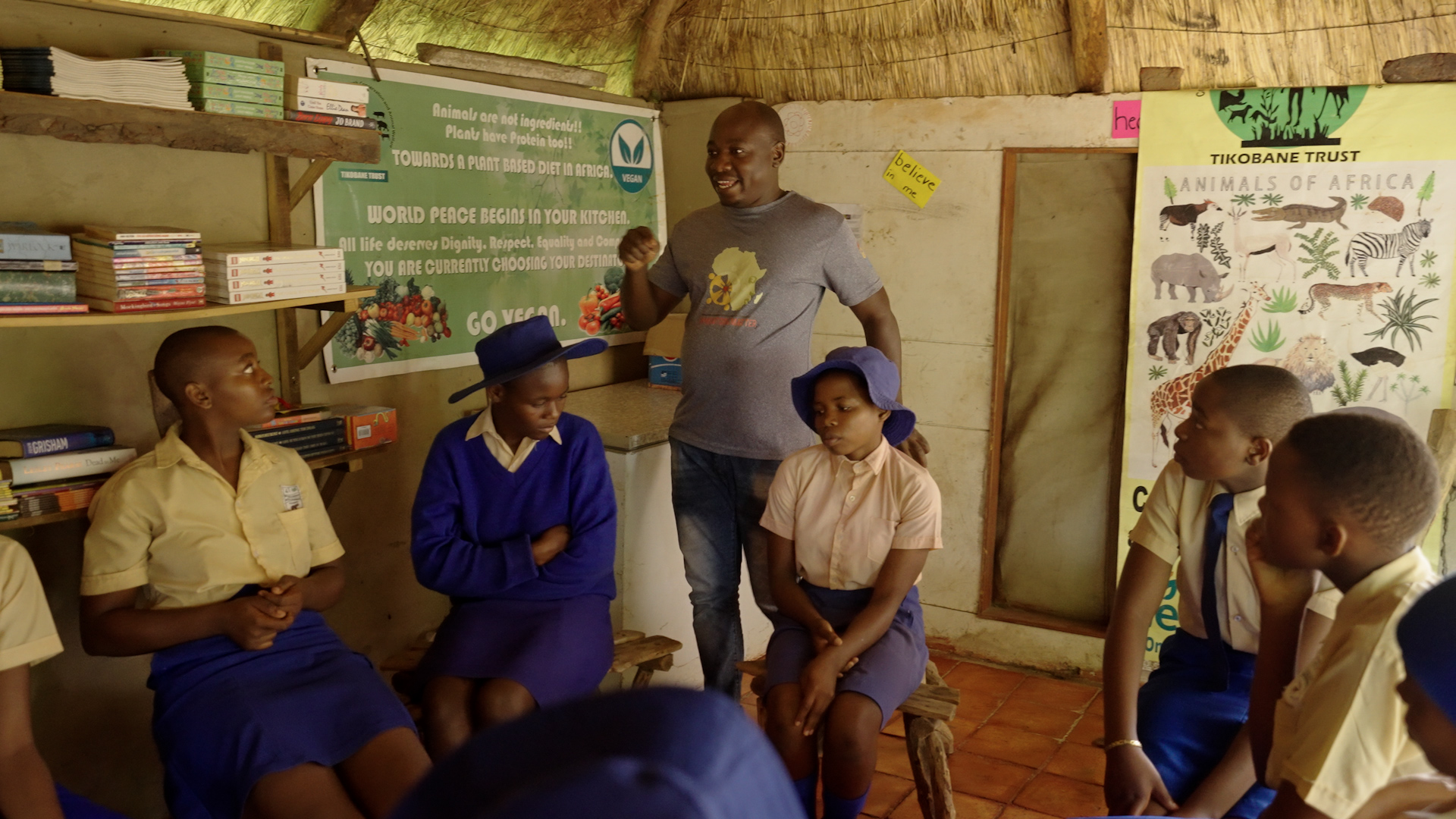UNSUNG HEROES
‘Local people hold the key to conserving wildlife’ — Ndlelendi Ncube is changing how Zim’s rural communities see nature

Locals were reluctant when the Tikobane Trust began encouraging them to participate in conservation. Now they’re starting to see its value.
Every weekday when Ndlelendi Ncube was growing up, he walked the 4km to his school in Dete, Zimbabwe and would often see elephants roaming or hear lions roaring in the distance.
Like most people in his community who live across the road from the Hwange National Park, Ncube (now 33) used to be afraid of the surrounding wildlife because of the prevalence of poaching and elephants that destroyed their crops.
But after witnessing lions up close during a safari when he was 24, Ncube saw these animals in a new light. “It’s so amazing to see these animals you were afraid of, and who destroyed your crops, in a relaxing environment,” he said.

Ndlelendi Ncube, director of Tikobane Trust (right) and team inspect the remains of an elephant. (Photo: Supplied)
“There are all these beautiful things these animals bring to us. That’s when I realised that instead of us being scared of these animals or trying to kill these animals, why can’t we find a way that can help [us] to coexist, as we are benefiting from each other?”
In 2015, Ncube left his job as a primary school teacher and started the Tikobane Trust with a group of young people, with the goal of finding solutions for their community to coexist peacefully with the wildlife that surrounds them and actively participate in conservation.
Ncube saw the opportunities that conservation and tourism could provide to his community, which struggles with unemployment.
“I see the opportunities and I know that we local people are capable and our indigenous solutions really are important in conserving our wildlife,” said Ncube.
Although Ncube’s community lives across the road from the Hwange National Park, he said not many people were employed in the wildlife conservation sector, explaining that if you are not already in the sector and don’t know anyone “you are completely shut out”.
And as many of the conservation activities are happening deep in the national park, locals are disconnected. Ncube said that to even visit a park manager you need a 4×4.
Elephants destroy crops
Most people who live in communities around Dete are rural subsistence farmers who grow maize and sorghum. Ncube explained that for many, it’s their only source of livelihood — what they rely on to feed their families or sell for a bit of income.
“What happens is that when the crops are about to be ripe, that is when the elephants come,” said Ncube. Elephants move in herds, sometimes numbering as many as 40, but even one elephant walking through a field can destroy the crops.
“Just one night of elephants invading a field can destroy crops that someone took two or three months to prepare.

Ndlelendi Ncube, director of Tikobane Trust, shows the non-harmful repellent they use in Dete, Zimbabwe, to keep elephants from destroying crops. (Photo: Supplied)
“It is something that is painful for the family,” reflected Ncube. “Not just painful, but it really destroys that livelihood.”
Farmers would call rangers or animal control teams to shoot the elephants, but a week or two later the elephants would be back, destroying more crops.
Tikobane Trust found an indigenous, non-harmful elephant repellent, made up of chilli, ginger, garlic or onion, neem leaves and elephant or cow dung, that they learnt to make from a group of people in Uganda. The repellent can last up to three weeks.
Ncube explained that as elephants have a very strong sense of smell, once the repellent (which hangs by a rope around the crops) is up, they don’t come within 200m of it.
The problem is that the community can’t grow ginger and garlic because they use too much water, and so the trust has to travel 400km to source those ingredients.
They aim to get a borehole installed so the community will have enough water to grow all the ingredients. “Instead of the community waiting for people to come and sponsor them with these ingredients every time, the community is actively involved with contributing towards the making of the repellents,” said Ncube.
Poaching
He believes that local people are the first line of defence when it comes to poaching.
He explained that while many poachers come from outside Dete, the kingpins will entice young local men to be part of the crews. He said it was a sad reality for these youngsters, who get paid $75 (around R1,300) to be part of a crew of about five people during a two-week poaching trip to get elephant tusks.
“Anti-poaching alone will not solve the problem of conservation. We need local people to be involved in the conservation of wildlife. When local people know the value of wildlife, certainly we will not have poaching, we will not have a problem of conservation,” said Ncube.
Changing perceptions
Along with (or perhaps perpetuated by) issues of elephants and poaching, and locals being excluded from conservation initiatives, Ncube said many people in the community don’t care about domestic animals (like donkeys and dogs).

Welfare for domestic animals is how Tikobane Trust introduces a peaceful relationship between animals and the people of Dete in an effort to promote conservation. (Photo: Supplied)
But the Tikobane Trust believes that fostering this relationship is where growing conservation starts.
“The trust started by addressing domestic animal welfare because we believe that for people to care about wildlife they should first take care of domestic animals,” said Ncube.
He recalled that when they first started, people couldn’t understand why they would want to keep alive a sick donkey which could no longer pull a cart, but after a few years of teaching people about the value of animals, attitudes began to change.
Now they get calls from people asking for help, saying that their donkey was injured in a lion attack. One person walked 7km from their house to the trust at night, carrying their six dogs after they ingested poison.
“That was, to us, really a moment to be proud of,” said Ncube. “People are really, really starting to warm up to taking care of their animals, you know, and they start loving them.”
For the love of their animal friends, young girls and boys do all that they can to love and show compassion.@HatAfrica @DTScholars @SPCAINT pic.twitter.com/VqGXhPUPd3
— Tikobane Trust (@tikobane) June 14, 2022
After working with domestic animals, the trust gradually introduced the importance of wildlife conservation and explained what the community could do to forge a peaceful coexistence with the wildlife.
Education and opportunities
A big problem with communities being excluded from the conservation sector is a lack of awareness about how to get into the space and the hurdles to getting qualifications.
Tikobane Trust and the Wild Africa Fund have started a programme to educate young people on conservation, taking them to lodges to give them first-hand experience with the available jobs and the qualifications that are needed. Ncube said that while a few lodges had been welcoming, one of the biggest challenges the trust faced was funding.

Ndlelendi Ncube, director of Tikobane Trust, teaches young people from the rural community of Dete in Zimbabwe about the value of conservation. (Photo: Supplied)
Along with starting a library that has books on conversation, every Friday the trust visits two schools in the area, which have a total of 700 children, teaching them the importance of conservation.
From February to June this year they’ve held 40 meetings with groups of 30 people from the rural community, and they speak to traditional leaders, who can spread their message.
“When we started, I remember we were going with a group of young girls and boys to the national park, and we saw a lot of impala, and I asked them, ‘What do you see in those impala?’ and three-quarters of them said they saw relish.”
The trust has shown those young people the value of wild animals and fostered their relationships with domestic animals, emphasising “that these animals are far more helpful to us when they are alive than when they are dead”, said Ncube.
“When people have that relationship with these animals, they will know that these animals are special, that they should look after them.”
Ncube added that while the Tikobane Trust’s impact may not seem huge now, “I believe that our little actions and steps that we are doing, in the end, will really pay off.” DM




















Comments - Please login in order to comment.